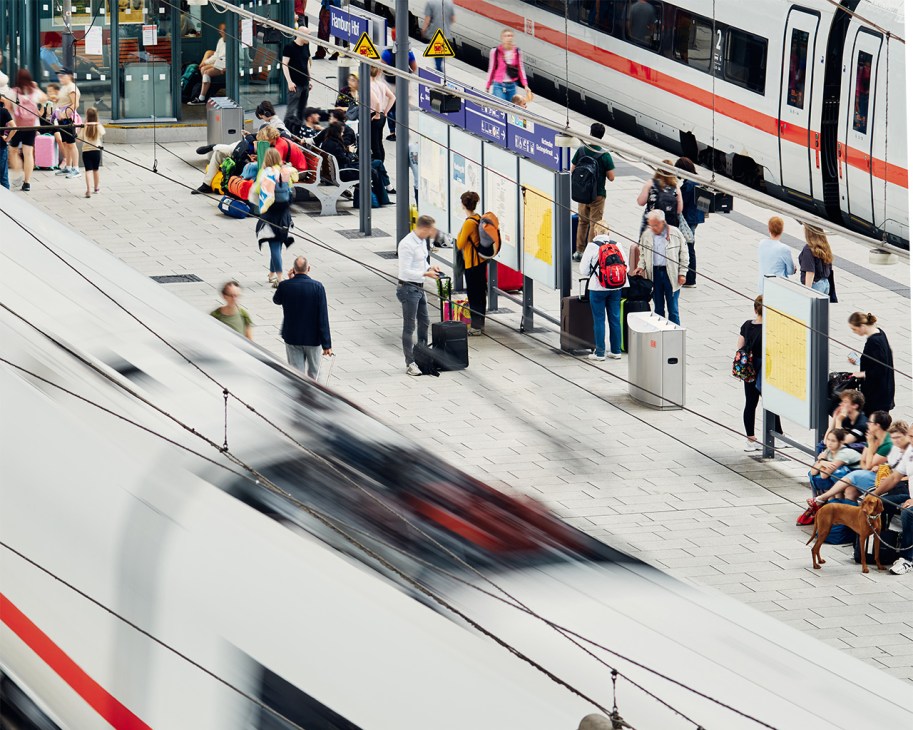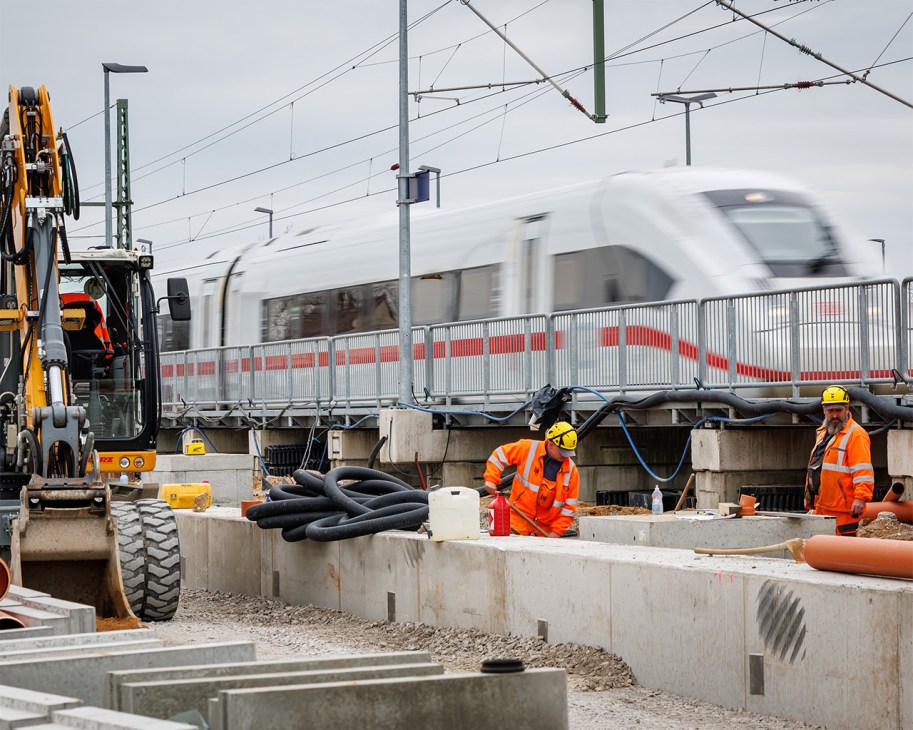Germany’s train chaos: How did Deutsche Bahn go off the rails?
Germany’s railways are in crisis. Trains run late, tracks crumble and management looks away. Rail expert Christian Böttger explains how the state-owned enterprise got so offtrack – and why billions won’t fix it.
Just as travellers were bracing for another summer of delays, broken air-con and apologetic announcements, Germany’s transport minister, Patrick Schnieder, pulled the emergency brake at Deutsche Bahn (DB) and dismissed its CEO, Richard Lutz, after eight years at the helm. The list of grievances is long: punctuality at an all-time low, a network in disrepair, mounting deficits and a much-vaunted overhaul that’s barely left the station.
Lutz’s departure might have been inevitable but the problems he left behind are anything but solved. With major track renovations delayed until at least 2036 and passenger satisfaction circling the drain, the state-owned transportation operator now finds itself at a crossroads. “The state of the railway is dire,” says Schnieder, while promising to present a new strategy and possibly a new CEO on 22 September. But can a new face at the top get the Bahn back on track – or is the rot too deep for a quick fix?
Monocle sat down with German rail expert Christian Böttger to talk about what went wrong, what needs to change and whether the nation’s once-proud railway can still be rescued.

The dismissal of Deutsche Bahn’s CEO felt abrupt. Did it come as a surprise to you?
Hardly. Everyone knew that Lutz had been on the chopping block for a while. He presided over years of missed targets and a culture of glossing over problems rather than fixing them. What is surprising is the timing. Pulling the plug in the middle of the summer holidays without a new strategy or a fresh face ready to step in has caused a sudden vacuum at the top of a company that already runs on chaos. It’s hardly the confident reset an ailing railway needs.
Deutsche Bahn’s woes run deep. Trains are delayed or cancelled, bridges are crumbling and public frustration is mounting. How did it come to this?
The narrative put forward by DB and politicians is that somehow, the country’s rail infrastructure fell into disrepair overnight. No one can explain how it happened, and frankly, nobody seems keen to find out. In truth, soaring traffic has overwhelmed an ageing network while workforce planning has failed, leaving shortages in drivers, controllers and technicians. At key hubs such as Köln or Frankfurt, even a minor disruption now triggers delays across the entire network. Meanwhile, management has become bloated yet oddly absent when problems arise. There are plenty of people in charge – just never the right ones when something goes wrong.
Has it always been like this?
Historically, the railway never held much prestige – neither in East nor West Germany. But after reunification, the newly merged DB became a respected company. Passenger numbers rose, freight transport surged and public confidence grew as sleek new high-speed lines began operating. Then its leadership shifted its focus abroad, selling assets to finance the company’s foreign ventures.
Why?
The management level became obsessed with becoming a global logistics giant, chasing shipping contracts between China and the US or getting involved in mining logistics in Australia. Instead of reinforcing its core mission, DB weakened itself from within, trading long-term resilience for short-term financial gain. This decline wasn’t immediately obvious but the rot was already setting in. Years of neglect, asset-stripping and poor governance eventually caught up with the company, leaving behind a sprawling, inefficient organisation that now struggles with the fundamentals of providing reliable passenger rail. Last year, punctuality in long-distance services fell to 62.5 per cent – the worst figure in decades. Only recently has there been political will to redirect DB’s focus back to its core responsibilities at home.

In 2024, former transport minister Volker Wissing promised the “most modern rail in Europe” and an infrastructure overhaul by 2031. How realistic is this?
DB has long been adept at managing its ministers, and most lack the expertise to push back. The rail operator presented Wissing with a convenient script – blame infrastructure – which is good for publicity but entirely detached from operational reality. No infrastructure programme can succeed unless DB itself changes. The company’s sprawling bureaucracy needs streamlining, its governance tightening and clearer lines of accountability established. Today, not even the federal government has effective control.
How much influence do politicians actually have then?
In principle, DB was designed to operate at arm’s length from the government, with state funding tied to specific contracts. But no such contract exists for long-distance rail. So when the transport minister lashes out at DB for underperformance, he’s criticising what is, in effect, his own operation. As the rail operator’s performance has declined, politicians have tightened their grip while still demanding more without paying properly – all while DB has built a powerful lobbying machine of its own, creating a cosy but inefficient relationship that leaves neither side truly accountable.
What could DB learn from, say, Switzerland?
The Swiss have a strong infrastructure, a disciplined system, sufficient staff numbers and, crucially, a consistent transport policy. But let’s not forget that Switzerland is a small country with far fewer planning headaches than Germany. If you take away the mountains, you’re left with a densely populated country. If cargo has to get through a village in a narrow valley, the choice is clear: either 10 freight trains or a thousand lorries. Most people would rather have the trains.
The federal cabinet just approved a €107bn support package through to 2029. Is that enough to get Germany’s railways back on track?
Right now, funding is the least of my concerns. Without a serious overhaul of DB’s management structures, outdated technologies and cumbersome regulations, even a generous injection of capital won’t get us far. The state must take clearer ownership of its role. A separation of infrastructure from operations would also be advisable to secure the network’s independence and create a fairer playing field for competition. But even that won’t matter unless DB addresses its acute workforce shortage. There have been endless summits on staffing but little action. Who will maintain the tracks, drive the trains and manage the signals? Before we talk about budgets, we need to talk about who’s going to do the work.
Christian Böttger is a professor at the Berlin University of Applied Sciences and one of Germany’s leading experts on rail transport. He has advised the Bundestag’s transport committee on several occasions.
Read next: Can this Cold War-era train revive the romance of rail travel?



